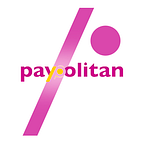Technology and ecosystem
Technology
At the heart of the Paypolitan solution, we are designing and architecture of smart contracts that will allow push (customer pushes funds to merchant) and pull (merchant connects to customer account via a smart contract and ‘pulls‘ funds into its account) transactions. This is of course subject to predefined terms and prior acceptance by the involved parties.
The payment protocol is designed to facilitate flexibility in transaction mechanics. In order to provide this flexibility, based on the smart contract architecture, the payments can be done in cryptocurrencies or by connecting directly to the bank account transferring FIAT currency.
The innovative architecture of the protocol will open the door to an entire universe of payment mechanisms that are very common in our daily lives. We intend to give merchants the opportunity to design their own transactions and implement their own business logic, and to provide the customer with a powerful tool to manage their funds, payments, and recurring payment contracts.
The Paypolitan solution strives to provide a flexible payment tool that leverages the benefits of blockchain technology, smart contracts, cryptocurrencies, and open banking innovation.
This motivation inspired the modular architecture of the protocol. The core functionality of the Paypolitan protocol will be contained in its on-chain architecture, which is designed to be flexible and to evolve with the needs of the community.
A key concept of the Paypolitan protocol is the “Smart Contracts”, which is a digital authorization to access an underlying asset (e.g. bank account, cryptocurrency account) to initiate a payment or access information.
The protocol will be implemented as a combination of Smart Tokens with access via an SDK (Software Development Kit) and API (Application Programming Interface).
Paypolitan ecosystem components
The Paypolitan platform will use blockchain technology, smart contracts, and open banking APIs to provide a next — gen billing solution that meets the needs of modern payment systems for businesses and customers alike.
- Paypolitan Token (EPAN). Paypolitan Token is the payment mechanism for the merchants adopting the Paypolitan protocol with cryptocurrencies means of payment;
- Account. The account will be implemented as a public address that is used to track the balance of Paypolitan tokens, access tokens, transfer contracts, and restrictions associated with that address;
- Authorizers. Authorizers will operate as modular rules that will determine if and when a transfer contract can be executed. A simple example is a subscription payment that should be operated on the 10th of every month. Multiple authorizers can be chained together in a transfer contract;
- Access tokens. Smart contracts used by Paypolitan protocol to access end-user bank account information. The RTS (Regulatory Technical Standards) of PSD2 requires banks and TPP’s (Third Party Providers) to perform Strong Customer Authentication (SCA) when a user accesses a payment account, initiates a financial transaction, or performs any action via a remote channel that might imply payment fraud. An important topic of the RTS is therefore how the Strong Customer Authentication mechanism can be integrated into the communication interface of the back. According to Article 27(3), the online communication interface of the bank — whether it’s a dedicated or existing customer interface — must allow TPPs to rely on the mechanisms used by banks to authenticate its customers. For instance, if the bank offers a hardware token, card reader or mobile authentication app to its users, then TPPs must have the option to use these mechanisms to authenticate their users as well. Article 27(3c) furthermore states that it must be possible to submit personal security credentials and authentication codes to the bank via the TPP. In other words, the user might enter his bank-provided credentials into a webpage or mobile app provided by the TPP, and the TPP would then forward these to the bank for verification. These requirements give rise to a number of possible approaches for the flow between a bank and a TPP, which are currently being developed in more detail by several European standards organizations;
- Transfer contracts. Transfer contracts are smart contracts that represent a payment relationship between accounts and facilitate the transfer of funds between them. They are designed flexible and support multiple payment mechanisms (fiat or crypto transfers). These tokens allow the merchants to implement their own payment logic, billing mechanisms and present them to the user for approval before their transmission and execution on the blockchain. In order to facilitate this a set of vetted pre-built authorizers will be created, so that each merchant can build transfer contracts by chaining together modular components;
- Bank transfer tokens. Are a subset of the transfer contracts that allows the execution of a transfer contract to initiate a payment from the end-user bank account;
- Paypolitan Bank Access. Paypolitan will use the Open Banking APls in order to allow the user to connect its account to various banks and execute the transfer contracts directly from the bank accounts. Using transfer tokens with bank access eliminates the need to share payment information (written directly on the credit cards.
Links
Web: https://paypolitan.io
Twitter: https://twitter.com/paypolitan
Telegram community: https://t.me/paypolitan_chat
Telegram news: https://t.me/paypolitan_ann
Discord: https://discord.gg/nShrBZfeJd
